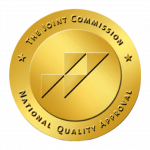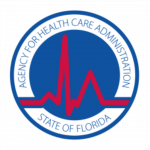What is an Overdose?
An overdose occurs when an individual consumes more than the appropriate or prescribed dosage of pharmaceutical medication. An overdose also occurs when an individual consumes a dangerous amount of an illegal drug or alcohol.
Overdoses can be accidental. For example, an individual could have taken drugs that are laced with other fatal substances. Or the individual could be so intoxicated that the person consumes more drugs without realizing the dose. On the other hand, overdoses can be intentional. For example, an individual can be suicidal, and purposefully take a dangerous amount of a substance in order to self-harm.
Overdose Signs
The signs and symptoms of an overdose can vary depending on which substance an individual is overdosing on. It can be difficult to find out if an individual is overdosing, due to an individual experiencing the psychoactive effects.
If you are ever concerned that someone is experiencing an overdose, call 911. Wait with the person until medical professionals arrive. This way, you can provide information to the medical professionals, as well as providing assistance when needed. Below, we’ll go over some common substances that people overdose on and the symptoms.
Xanax
Xanax or other benzodiazepine medications like Valium or Klonopin, are legitimately prescribed but also widely abused. Overdose can occur from these substances alone, but even more so, when they are mixed with other substances, especially alcohol and opioids.
Symptoms of an overdose can include:
- Drowsiness
- Disorientation, dizziness, blurred vision
- Mood changes, anxiety, agitation
- Slurred speech or appearing drunk
- Amnesia or memory loss
- Hallucinations
- Unresponsive
- Coma
Cocaine
Cocaine is highly addictive and though it has short-term and long-term negative effects, the most immediate danger is overdose. The unpredictable nature of cocaine overdose is due to the fact that dosage does not always indicate when an individual will suffer an overdose. An individual can reach toxic levels in the system with even a small dose. Cocaine is often mixed with other drugs by manufacturers to increase profits, which can be dangerous and lethal.
Symptoms of an overdose include:
- Increased heart rate
- Increased body temperature
- Nausea and vomiting
- Chest pain
- Tremors
- Anxiety and paranoia
- Delirium
Heroin
Heroin is a risky and highly addictive drug. Addiction and overdoses have increased at alarming rates due to the excessive amount of prescribed painkillers. When painkillers stop providing the fix that an individual needs, they move on to harder and more dangerous substances like heroin.
Symptoms of an overdose include:
- Shallow breaths
- Gasping for air
- Very pale skin or bluish tint to lips and fingertips
- Weak pulse or low blood pressure
- Pinpoint pupils
- Disorientation or delirium
- Spasms or seizures
- Coma
- Extreme drowsiness or unresponsive
What To Do Next
If you are concerned that someone is overdosing first and foremost, call 911 and stay with the person until help arrives. If you have any information about the person or the drugs they have taken, be sure to inform the medical personnel.
Next, if you know or suspect the person is overdosing on heroin or opioids, ideally the individual should be ventilated with 100% oxygen before administering Naloxone (or Narcan) in order to reduce the risk of injury to the lungs. Check the individual’s airway is clear. To do so, tilt their head back, and pinch the nose closed. Place your mouth over the person’s mouth to make a seal and administer 2 slow breaths. The individual’s chest should rise, continuing with one breath every 5 seconds.
When administering Narcan, it can be done with a nasal spray or by injecting into an individual’s muscle or into the veins. Keep in mind, Naloxone or Narcan will not totally stop an overdose, this treatment will buy an individual more time until they can get life-saving medical treatment.
After Overdose
Ideally, an individual should get treatment for substance abuse before an overdose. Sometimes an overdose is a catalyst for seeking treatment. However, there are many treatment options for substance abuse disorder or addiction.
Harm Reduction Center is a private healthcare facility that offers treatment for substance abuse, mental health, and more in Boynton Beach, Florida. Our goal as a provider is to empower and support our clients’ recovery. If you or a loved one needs help, please contact us today.














